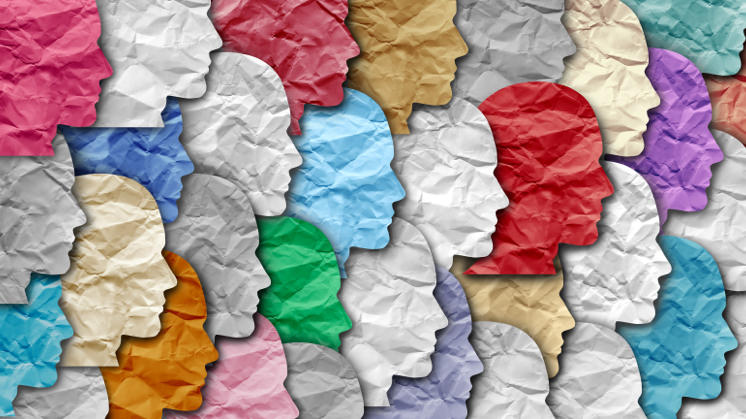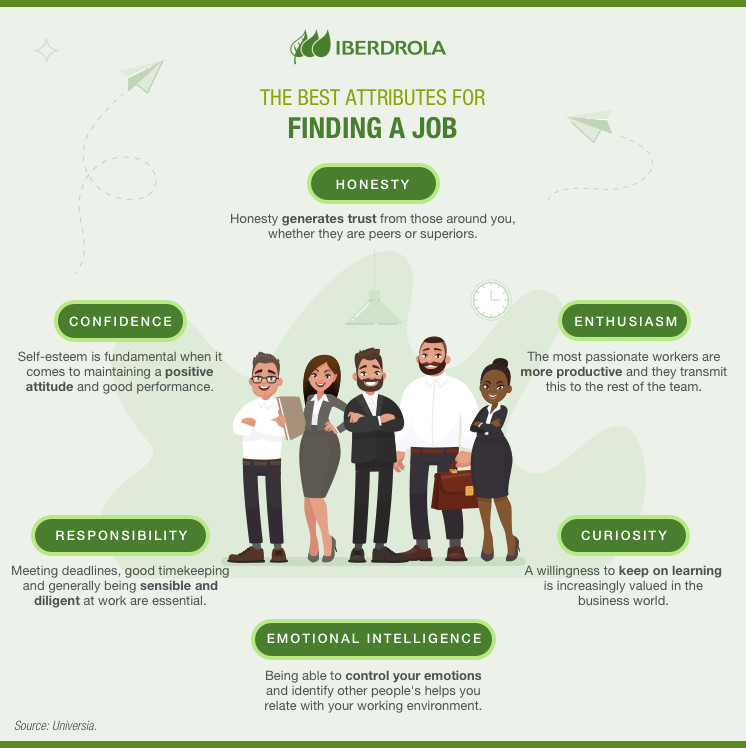Personality at work
Does your personality affect your professional development?
Languages, experience, training and knowledge are fundamental elements when it comes to doing your job and advancing your career, but there is one enormously influential element that tends to go unnoticed: your personality. We analyse different personality types and how they can affect you in your day-to-day.

Our personality can have a huge influence on our professional development, either in a positive or negative way. In fact, a study by Truity, a US company specialising in online personality tests for businesses, indicates that "the way we are determines our decisions, objectives, successes and opportunities". So, knowing what our personality is can be an excellent way of finding out our strengths and weaknesses, allowing us to act accordingly.
Personality types
The subject of personality comes up constantly. For example, we often refer to people by saying that they have "a big personality" or "no personality". So, what is personality, exactly? Etymologically, personality comes from the Latin word personalitas, meaning 'mask', but psychologically, the definition goes much deeper than that. According to Gordon Allport, an American psychologist who was a pioneer in the study of personality, "personality is the dynamic organization within the individual of those psychophysical systems that determine their unique adjustments to their environment".
Despite being unique to each person, experts agree that personality can be classified into a number of different types: eight, according to Swiss psychologist and the father of analytical psychology, Carl Jung; sixteen, according to researchers Myers and Briggs; or four, according to a study by a team of scientists from Northwestern University, which has been widely accepted in modern psychology due to its scientific nature — it was conducted using big data techniques — and its huge sample of more than 1.5 million individuals. The four types are as follows:
 Average
Average
They display conscientiousness, agreeableness and comprehension. They are extroverted but also neurotic (emotionally unstable) and tend not to have many expectations when it comes to seeking new experiences and learning new things.
 Reserved
Reserved
Emotionally stable, agreeable, empirical and conscientious, but they are also shy, insecure and somewhat neurotic. They tend to maintain a certain distance from others.
 Self-Centred
Self-Centred
They are very extroverted, but not very open. They also tend to be controlling, have an air of superiority and are self-serving. The study categorises people with this personality type as toxic to themselves and those around them.
 Role Model
Role Model
Broadly speaking, they have few negative traits, like neuroticism and selfishness, and a lot of positive traits such as extroversion and agreeableness, etc. They have emotional intelligence and they are strong leaders.
Personality in the workplace
How is knowing our personality type useful? How can it help us in our career? It is useful when it comes to identifying which areas we are especially good in and guiding us toward certain areas, projects or sectors. It also helps us to accept ourselves as we are and avoid frustration. The good news is that although personality types cannot easily be changed, we can learn to manage and regulate them. So, no doors should be closed.
Twenty years ago, psychologists Robert and Joyce Hogan identified eleven personality traits — bold, cautious, colourful, diligent, dutiful, excitable, imaginative, leisurely, mischievous, reserved and sceptical — which, when taken to the extreme, could be detrimental in the workplace. This was the conclusion that psychologists Gaddis and Foster came to in their study Meta-Analysis of Dark Side Personality Characteristics and Critical Work Behaviors among Leaders across the Globe. Specifically, they stated that some of these characteristics, those that are apparently positive and socially accepted, can be detrimental to day-to-day performance when intensified, so they can have a negative impact on a company.

How personality is evaluated
Personality can be measured using tests like Myers Briggs Type Indicator (MBTI), the Hogan test, the colour test, the DISC profile and many others. While they may differ in their approach, formulation and objectives, the end goal is the same: to start a discussion on the personality that defines us. They take the form of questionnaires of varying lengths which must be answered spontaneously within a set amount of time.
Most of them fit into one of two categories: introspective or projective. Introspective tests consist of closed-ended questions — yes, no, don't know — which require an alternative to be chosen. The information extracted is compiled into a profile of differential personality traits which measure levels of self-confidence, honesty, loyalty, aggression, sociability, emotional stability, etc. Projective tests, on the other hand, present possible situations and ask the subject to provide a solution. The response is therefore open and identifies the individual's personality.




